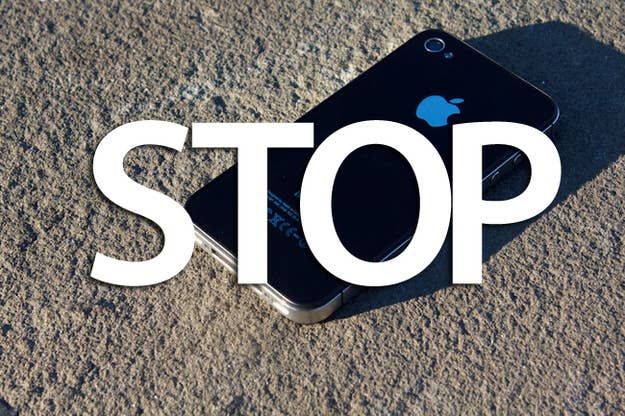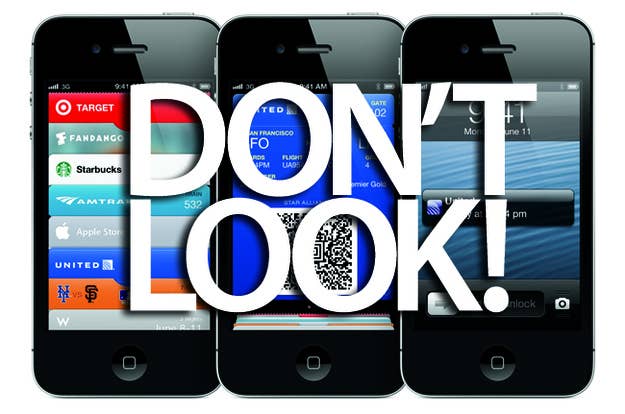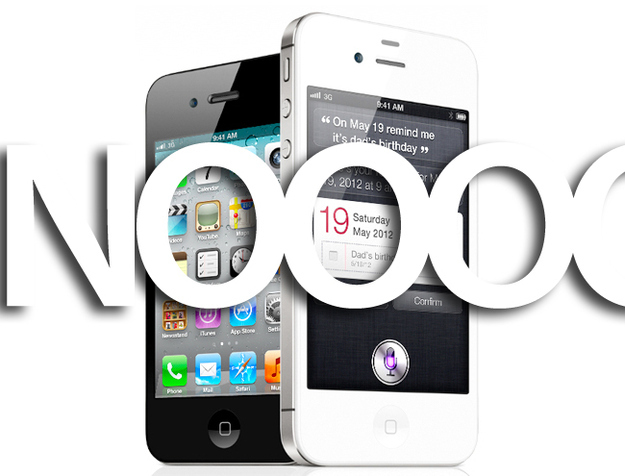
Sprint started it a week ago, dropping the price of the iPhone 4S by $50 — making a 16GB phone $150 with a 2-year contract. Then Target knocked $20 off. And now brick-and-mortar Apple Stores are officially price matching whatever deals are offered by major retailers and carriers, up to $50 off. Cheaper iPhones, hurray. Except that they're all just clearing out stock for the new models that will probably arrive in the next few weeks, so you shouldn't buy one.
The announce date of the new iPhone is pegged to be Sept. 12 by the New York Times, Bloomberg, The Wall Street Journal and many, many others.
.

Okay, there's a new iPhone coming out in a month or so. Why wait for the new thing? Velocity. Mobile technology moves fast. While you can sort of reasonably expect to hang on to a desktop computer for three or four years, a smartphone's life cycle is two years, tops. (Notice how perfectly timed that two-year cellphone contract is? To the minute you're ready to toss your old and busted brick out a window.) Even within the strictly controlled iPhone ecosystem, the two-year-old iPhone 4 runs like crap with the latest version of Apple's iOS software and will miss out on some of iOS 6's more whizbang features, like 3D maps. The iPhone 4S is a year old. So you'd be buying a middle-aged phone. And I guarantee within six months, you'll complain about how slow your phone is, just like iPhone 3GS and iPhone 3G owners before you — something always manages to happen with the second or third major release of an iOS version (like iOS 5.1) that makes a previous-generation model run like a dog bloated from eating a million Pizzabons.
You've heard of Moore's Law, right? It's that the number of transistors that can fit on an integrated circuit double about every 18 months. Traditionally that's meant to the layman that processors get roughly twice as fast (or twice as power efficient) every 18 months. On desktops and laptops, processors have gotten so fast that the real bottlenecks in performance for most people have been elsewhere, like hard drives — so if you've upgraded to a new computer from one that isn't ancient, maybe it didn't feel that different. On mobile, because of power constraints, it's a totally different story. Every speed bump counts. Oh, and another thing: Image sensors for digital cameras are produced in much the same way as processors, so Moore's Law covers them too. So they get roughly twice as good every 18 months too. (When I reviewed Nikon's flagship D3s, it was about twice as good at capturing light as its predecessor, the D3.) Camera sensors in cellphones are nowhere near good enough to make those kind of year-by-year performance gains trivial. You want this better camera.

And even if you don't want all that, the discount on the current iPhone is going to be even steeper when the new one is actually out there. If Apple follows its historical pricing models, an iPhone 4S will be $100 when the new one comes out, another $50 off.
A smartphone is the most personal computer you will own. It will probably be on your person for most of your waking hours, which is probably not true of your laptop or tablet. That's exactly why I think it's the one computer you don't want to skimp on — you will spend more time with it, during more of the most important moments of your life, than you will with any other device. So it should be the best phone you can afford. Right now, that means waiting. Whether it's for the new iPhone, or the new Windows Phone 8, or a new Nexus phone from Google. Wait. And then buy the very best thing you can.

